|
|
TODAY.AZ / Analytics
Azerbaijani President outlines peace hurdles in face of Armenia's foreign presence
19 December 2024 [08:30] - TODAY.AZ
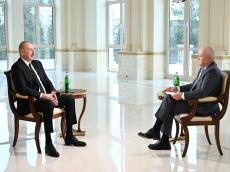
Since the installation of the first border post on April 23, 2024, which was part of the process of establishing coordinates based on geodetic measurements on the ground, expectations were high that this initiative would progress the peace process between Azerbaijan and Armenia positively. However, that optimism has not yet materialized. This moment stands as the last significant positive development in the push for a peace agreement between the two sides. The current stalemate raises concerns that negotiations for a peace agreement, following the liberation of Azerbaijani territories from Armenian occupation, may falter. But how long can this uncertain situation persist?
Historical context:
The groundwork for these negotiations lies in Azerbaijan’s restoration of sovereignty over Garabagh in 2023. This decisive moment marked the end of nearly three decades of occupation and shifted the focus to normalization efforts. Delimitation and demarcation discussions began in earnest in 2024, with tangible results such as Armenia's return of four border villages to Azerbaijan. However, these advancements coexist with unresolved tensions, including constitutional and territorial disputes.
The post-2023 landscape has seen tangible progress in Azerbaijan-Armenia relations. Key milestones include:
Territorial Restitution: Armenia’s return of four villages to Azerbaijan in 2024, in line with the Alma-Ata Declaration, marked a critical step in acknowledging each other's territorial integrity.
Bilateral Border Delimitation: Establishing a de facto peace regime has led to unprecedented cooperation, with border guards patrolling demarcated areas without helmets or bulletproof vests.
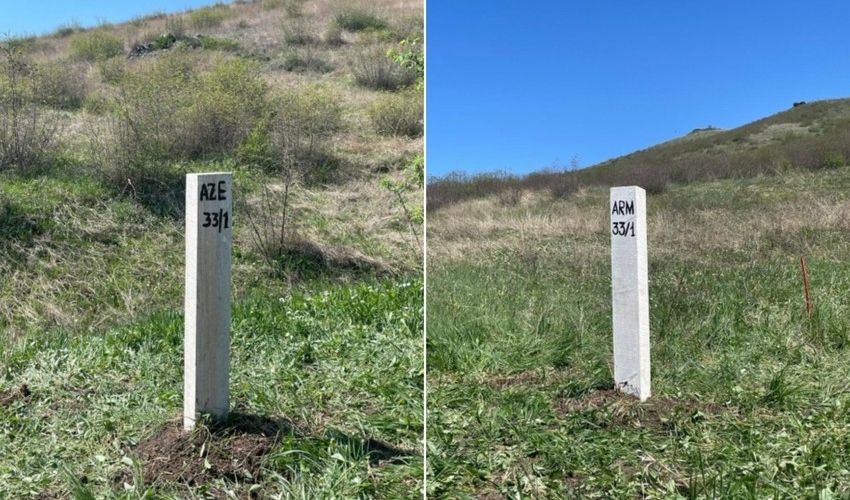
Despite these advancements, contentious issues remain particularly Azerbaijan's demand for constitutional amendments in Armenia to formally renounce territorial claims. Prime Minister Nikol Pashinyan faces mounting domestic opposition, complicating his government’s ability to sustain diplomatic momentum.
Now let’s examine the latest events and consider what the upcoming year has in store.
On December 11 Armenian Prime Minister Nikol Pashinyan firmly rejected Azerbaijan’s demand to amend the Armenian Constitution as a condition for a peace agreement. He emphasized that the Constitution does not contain territorial claims against Azerbaijan and stated that any amendments under pressure from Baku are not being considered. Pashinyan noted that the Constitutional Court of Armenia reaffirmed that the reference to the Declaration of Independence in the Constitution pertains only to its provisions.
Pashinyan himself declared in January that Armenia needs a new constitution reflecting the “new geopolitical environment” in the region. He denied critics’ claims that he wants to scrap the current constitution at Baku's behest. Still, Pashinyan said at the time that peace with Azerbaijan would be impossible as long as the constitutional reference to the 1990 declaration remained in place.
The issue traces back to Armenia's 1990 Declaration of Independence, which includes the concept of "miatsum," advocating for the annexation of Garabagh to Armenia. In May, the Armenian premier ordered an ad hoc government body to draft the new constitution by the end of 2026. The head of the body said afterwards that it will likely be put on a referendum in 2027.
Just after that, today President Ilham Aliyev, in a detailed interview with Dmitry Kiselev, laid bare the core challenges obstructing the treaty's finalization. These hurdles are not just about the two unresolved articles in the draft treaty but also reflect deeper geopolitical tensions and mutual distrust.
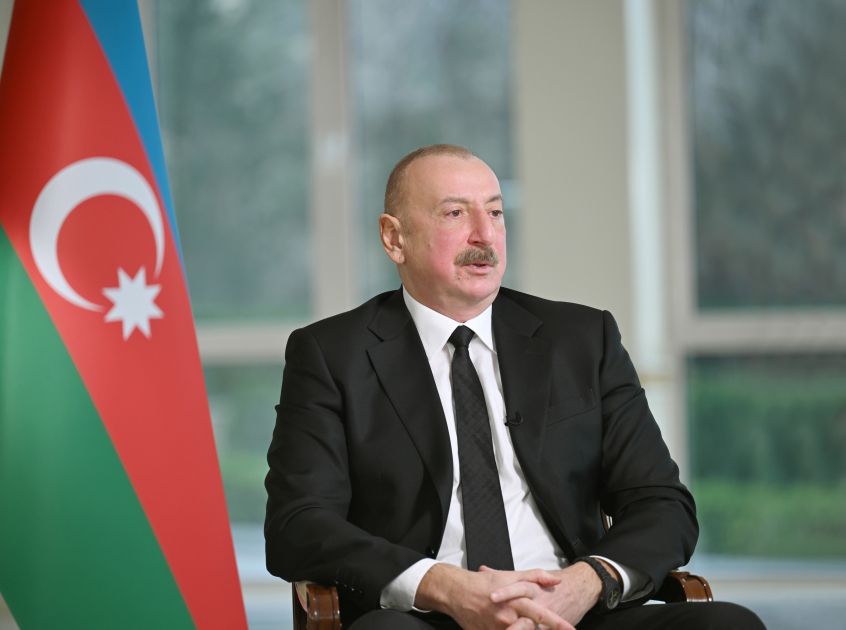
Let's take a look at the proposals.
Refraining from International Lawsuits
President Ilham Aliyev revealed that one unresolved article relates to both nations agreeing not to pursue international lawsuits against each other. This is critical, as Azerbaijan has meticulously documented damages from the Armenian occupation, estimated at over $150 billion. A mutual agreement would prevent prolonged legal battles and foster goodwill. However, achieving consensus on this point requires substantial political courage from both sides.Non-Deployment of Foreign Representatives
The second contentious article concerns prohibiting the deployment of foreign representatives, particularly NATO-associated personnel, near Azerbaijan’s borders. Baku's concerns stem from the evolving role of the EU Mission in Armenia (EUMA). Initially agreed upon as a small contingent of observers, the mission has expanded into what Azerbaijan perceives as a NATO-affiliated infrastructure. This escalation undermines the spirit of the 2022 quadrilateral agreement and has become a point of contention in peace discussions.
Beyond the peace treaty articles, Azerbaijan has set two additional conditions for normalization:
Amendments to Armenia’s Constitution
Armenia’s Constitution references its Declaration of Independence, which includes territorial claims against Azerbaijan, particularly over Garabagh. President emphasized that this amendment is not a matter of political symbolism but an "objective necessity" to ensure long-term peace and the legitimacy of Armenia’s recognition of Azerbaijani sovereignty over Garabagh.
Abolition of the OSCE Minsk Group
Despite its obsolescence following Azerbaijan’s 2023 victory, the Minsk Group formally remains in existence. Ilham Aliyev views its continued presence as a potential tool for Armenian revanchist aspirations. Azerbaijan demands its complete dissolution, aligning with the new reality where Gatabagh’s status is no longer a matter of international dispute.
EUMA's Role: A Source of Friction or Stability?
The European Union Mission in Armenia (EUMA), established under the Prague Agreements of 2022, was initially envisioned as a temporary measure to facilitate peace negotiations. Yet, its continued presence has raised concerns in Baku. Azerbaijan perceives the mission as an external imposition that undermines the bilateral nature of peace discussions, a sentiment echoed by its leadership.
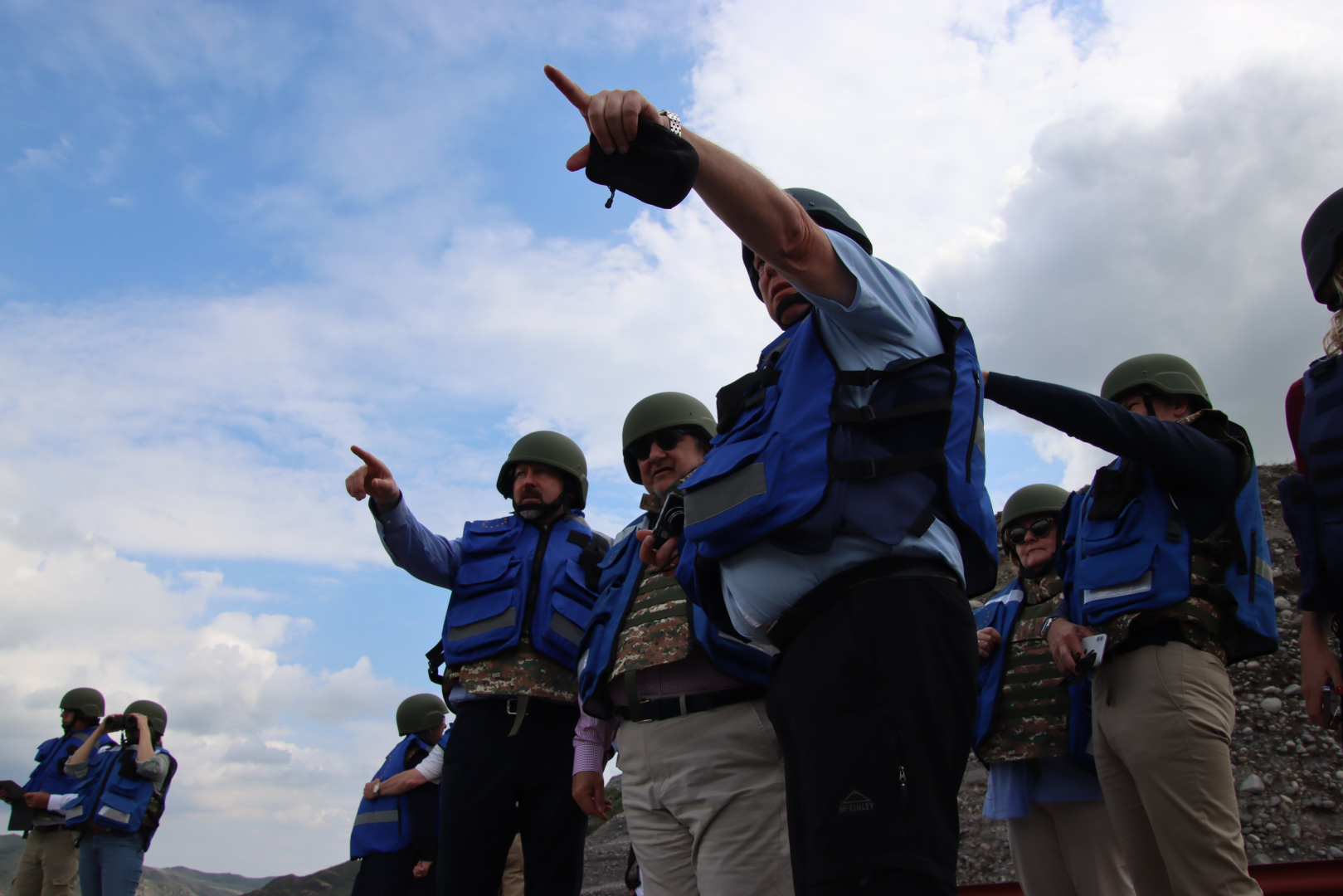
EUMA's activities, while framed as support for regional stability, appear to serve broader geopolitical interests. Critics argue that the mission is being used to strengthen EU influence in the South Caucasus amid waning Russian dominance. Meanwhile, financial constraints within the EU, coupled with Armenia’s strategic role in circumventing sanctions against Russia, further complicate the mission's legitimacy.
Moreover, the extension of EUMA’s term beyond February 2024 could disrupt progress in bilateral negotiations. As Azerbaijan contends, external oversight—whether from military forces or "civilian observers in yellow vests"—contradicts the principle of direct dialogue between the two nations. This viewpoint aligns with Azerbaijan's broader rejection of third-party interference, emphasizing mutual respect and sovereignty as the cornerstones of peace.
Conclusion
In addition just after President Ilham Aliyev's interview, Armenian Deputy prime minister Mher Grigoryan has also shared updates regarding the peace issue. According to Grigoryan, there will be a meeting in the near future because there was an agreement during the discussion, and approval phases of the regulation that we should meet and continue the work after the regulation comes into force. Interestingly enough, he also shared his thoughts regarding Zangazur Corridor stating, "We have repeated many times that there are red lines that are simply impossible to cross". However Azerbaijani side removed/paused the clause regarding this issue. They have also confirmed it subsequently.
The delays in signing the peace treaty cannot be viewed in isolation. Despite all the challenges, optimism remains. President underscored the progress achieved so far, with 15 of the 17 articles in the draft treaty already agreed upon. However, Armenia must demonstrate greater commitment to addressing Azerbaijan’s legitimate concerns, particularly regarding constitutional amendments and the Minsk Group’s dissolution. Additionally, international actors must tread carefully to avoid exacerbating tensions through unilateral support or expanded military infrastructure.
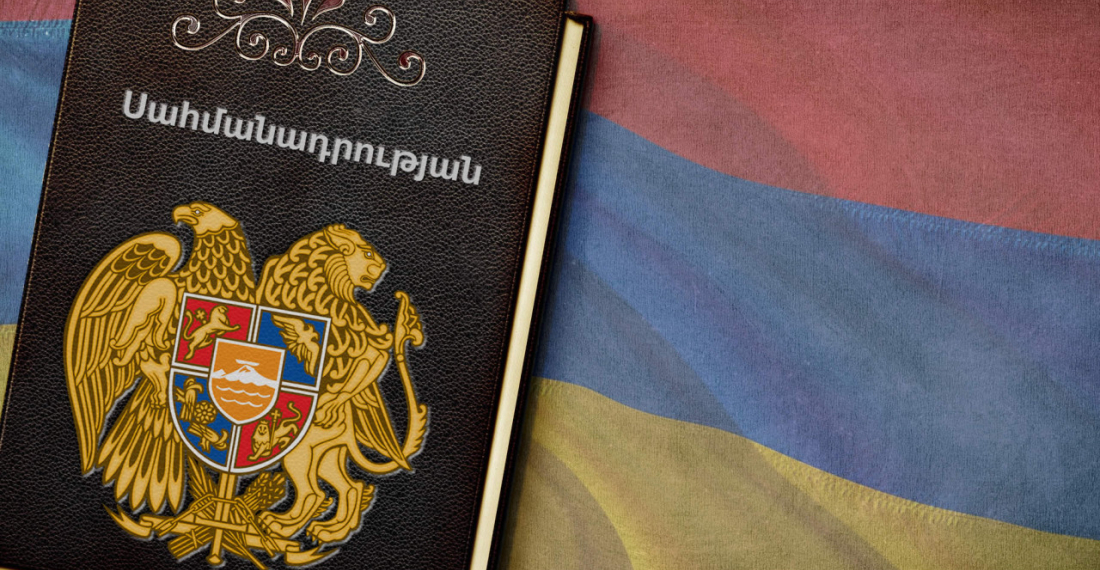
Most importantly, Azerbaijan cannot take such a step without Armenia making the necessary constitutional amendments. Doing so would be reckless and risky, creating a potential crisis for future generations of Azerbaijanis. Delaying this process for two or three years could be problematic. The longer these issues remain unresolved, the higher the risk of returning to hostility. As President Aliyev remarked, the remaining obstacles are surmountable if Armenia demonstrates the political will to meet Azerbaijan’s conditions.
Only a revised or newly adopted Armenian Constitution, without any disrespect for Azerbaijan’s territorial integrity, can ensure lasting peace in the region. Ultimately, from a realistic standpoint, coming to a resolution regarding the last two issues should not be that difficult.
URL: http://www.today.az/news/analytics/255715.html
 Print version
Print version
Connect with us. Get latest news and updates.
See Also
- 09 April 2025 [13:11]
From crisis to cooperation: Azerbaijan’s role in Turkiye-Israel rapprochement - 04 April 2025 [20:16]
Pezeshkian’s visit to Baku comes at critical time for Azerbaijan-Iran relations - 03 April 2025 [20:12]
How Donald Trump’s tariff impacts Azerbaijan’s trade with US [COMMENTARY] - 03 April 2025 [08:30]
Azerbaijan, Germany forge stronger ties in trade, energy, and peace-building - 02 April 2025 [17:56]
Azerbaijan represented at Int'l Theater Week in Uzbekistan - 27 March 2025 [17:25]
Azerbaijan leverages natural advantages for export success through boosting cotton sector - 25 March 2025 [15:15]
China steps up as new leader in global climate governance - 19 March 2025 [14:05]
US-Israel-Azerbaijan partnership to shape regional dynamics amid peace efforts - 19 March 2025 [10:44]
Athletes impress everyone with breathtaking performances - 19 March 2025 [08:30]
Azerbaijan's ongoing restoration efforts: Glimpse into revival of Aghdara
Most Popular
 Macron's fears are starting to come true
Macron's fears are starting to come true
 Siemens launches CAD$150 million AI R&D Center in Canada to revolutionize battery production
Siemens launches CAD$150 million AI R&D Center in Canada to revolutionize battery production
 Now he's selling people, too. Macron has broken another bottom
Now he's selling people, too. Macron has broken another bottom
 If we're going to join, then in a big way: NASA is waiting for an Armenian application!
If we're going to join, then in a big way: NASA is waiting for an Armenian application!
 Armenian forces open fire on Azerbaijani Army positions from multiple directions
Armenian forces open fire on Azerbaijani Army positions from multiple directions
 Azerbaijan honors 119 years of Molla Nasreddin satirical magazine
Azerbaijan honors 119 years of Molla Nasreddin satirical magazine
 Trial of Armenian-origin individuals accused of war crimes continues in Baku
Trial of Armenian-origin individuals accused of war crimes continues in Baku
